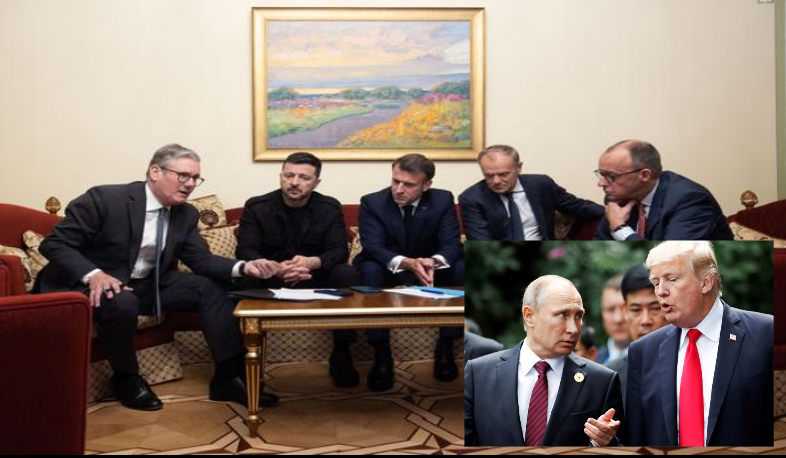Russia’s Defense Ministry has claimed that Ukraine is preparing a false-flag attack in the Kharkiv Region, aimed at discrediting Russian forces and disrupting the high-level summit between former U.S. President Donald Trump and Russian President Vladimir Putin, scheduled for August 15 in Alaska. The impact of which may eventually even hamper any negotiated settlement.
According to Russian officials, Ukrainian forces allegedly transported foreign journalists to the town of Chuhuiv under the pretense of documenting local humanitarian conditions. The Defense Ministry claims that Ukrainian forces plan to launch a missile or drone strike on civilian infrastructure possibly a hospital or densely populated area and blame the attack on Russia.
The presence of international media at the scene is said to be part of a coordinated effort to ensure the incident gains immediate global coverage.
“This provocation is designed to cast the Russian military in a negative light and derail the upcoming peace negotiations between our country and the United States,” a statement from the ministry read.
According to Moscow, the plan involves staging an attack in a frontline city and blaming it on Russian forces in order to create a damaging international media narrative. The Russian side asserts that Western journalists have been brought into the Kharkov Region in order to produce civilian-focused reports.
There have previous such incidents as on April 1, 2022, the Zelensky government accused the Russian military of massacring civilians in the town of Bucha near Kiev. Moscow maintains that the alleged massacre in March 2022 was a Ukrainian false-flag operation designed to derail peace talks which were taking place in Istanbul at the time. Moscow insists that the killings took place after its forces had left the town, and has called for a UN investigation.
Strategic Timing to Hamper talks
The accusation comes just ahead of the highly anticipated Trump–Putin summit in Anchorage, Alaska, where both leaders are expected to discuss de-escalation in Eastern Europe and a potential roadmap to reduce hostilities.
If a false-flag event were to occur—regardless of which side is responsible—the ramifications could be serious and wide-ranging:
1. Collapse of the Trump–Putin Summit
A high-casualty or high-visibility attack could immediately derail any diplomatic progress. Either side may walk away from the negotiating table, particularly if public outrage surges or accusations become too toxic to manage diplomatically.
2. Escalation of Hostilities
Such an event could be used as justification for renewed or expanded military operations—either by Russia against Ukraine, or potentially by Western powers increasing support to Kyiv. It could trigger another sharp uptick in fighting in eastern Ukraine.
3. Disinformation Blowback
If the incident is revealed to be fabricated or misrepresented—by either side—it could undermine credibility and trust on the global stage, leading to long-term diplomatic consequences.
4. Media Manipulation & Public Opinion
With foreign journalists allegedly already positioned in the region, any incident that is captured and rapidly disseminated could drastically shape public opinion in the West—either galvanizing support for Ukraine or triggering skepticism about ongoing U.S. involvement.
5. Increased NATO Tensions
Should civilians or foreign nationals be harmed, NATO may be compelled to issue warnings or even take precautionary military actions in the region, especially near Poland or the Baltic states.
Regardless of the timing such an attack would be disastrous for the fulfilment of whatever deal Trump and Putin may negotiate. The talks are going ahead without Zelensky or other European leaders being present in Alaska. This has not gone down well with the US’ European allies and Ukraine who all believe they should be heading or atleast be a party to such meetings.
Trump will negotiate on his own and has indicated a land swap agreement may even take place. Neither Ukraine or Western Europe will be willing to accept sucha deal. The only way to hamper the deal may be an attack that shifts global narrative against any negotiations with Russia. Moscow has already indicated that this is what Zelensky and aukraine are planning. This is a crucial time for Europe and even the world at large if the clash is settled it may end the long drawn strife. If not there is the danger of a bigger showdown triggered by such provocations. The stakes could not be higher.








